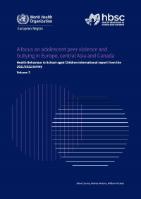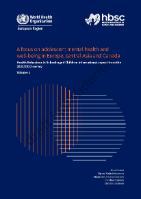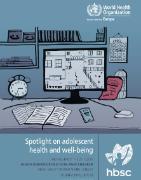-
Courses

Courses
Choosing a course is one of the most important decisions you'll ever make! View our courses and see what our students and lecturers have to say about the courses you are interested in at the links below.
-
University Life

University Life
Each year more than 4,000 choose University of Galway as their University of choice. Find out what life at University of Galway is all about here.
-
About University of Galway

About University of Galway
Since 1845, University of Galway has been sharing the highest quality teaching and research with Ireland and the world. Find out what makes our University so special – from our distinguished history to the latest news and campus developments.
-
Colleges & Schools

Colleges & Schools
University of Galway has earned international recognition as a research-led university with a commitment to top quality teaching across a range of key areas of expertise.
-
Research & Innovation

Research & Innovation
University of Galway’s vibrant research community take on some of the most pressing challenges of our times.
-
Business & Industry

Guiding Breakthrough Research at University of Galway
We explore and facilitate commercial opportunities for the research community at University of Galway, as well as facilitating industry partnership.
-
Alumni & Friends

Alumni & Friends
There are 128,000 University of Galway alumni worldwide. Stay connected to your alumni community! Join our social networks and update your details online.
-
Community Engagement

Community Engagement
At University of Galway, we believe that the best learning takes place when you apply what you learn in a real world context. That's why many of our courses include work placements or community projects.
International reports
 HEALTH BEHAVIOUR IN SCHOOL-AGED CHILDREN (HBSC) IRELAND
HEALTH BEHAVIOUR IN SCHOOL-AGED CHILDREN (HBSC) IRELAND
World Health Organization Collaborative Cross-National Study
The Health Behaviour in School-aged Children (HBSC) survey is a WHO collaborative cross-national study that monitors the health behaviours, health outcomes and social environments of school-aged children every four years. HBSC Ireland surveys school-going children aged 9-18 years. The study is conducted by the HBSC Ireland team, based at the Health Promotion Research Centre, University of Galway.
Other HBSC International publications can be found on the HBSC International website http://www.hbsc.org/
LATEST HBSC INTERNATIONAL REPORT - LAUNCHED 27 March 2024

Launched on 27 March 2024, the report ‘A focus on adolescent peer violence and bullying in Europe, central Asia and Canada’ is the second in a series of international reports using data from the Health Behaviour in School-aged Children (HBSC) survey 2021/2022.
The report is available to download from https://bit.ly/hbsc-vol2
This second report focuses on patterns of bullying and peer violence among adolescents across 44 countries and regions.
While the overall trends in school bullying have remained stable since 2018, cyberbullying has increased, magnified by the increasing digitalisation of young people’s interactions, with potentially profound impacts on young lives.
Some of the key findings include:
- Bullying others at school - An average of 6% of adolescents engage in bullying others at school. This behaviour is more prevalent among boys (8%) compared to girls (5%).
- Being bullied at school - Approximately 11% of adolescents have been bullied at school, showing no significant difference between boys and girls.
- Cyberbullying others - About 12% (1 in 8) of adolescents report cyberbullying others. Boys (14%) are more likely to report cyberbullying than girls (9%). Notably, this reflects an increase from 2018, with boys up from 11% and girls from 7%.
- Being cyberbullied - 15% of adolescents (around 1 in 6) have experienced cyberbullying, with the rates closely aligned between boys (15%) and girls (16%). This represents an increase from 2018, from 12% to 15% for boys and 13% to 16% for girls.
- Physical fighting - One in ten adolescents has been involved in physical fights, with a noticeable gender difference: 14% of boys versus 6% of girls.
LATEST HBSC INTERNATIONAL REPORT - LAUNCHED 10 October 2023
 Launched on World Mental Health Day, 10th October 2023, the report 'A focus on adolescent mental health and well-being in Europe, Central Asia and Canada' is the first in a series of international reports using data from the Health Behaviour in School-aged Children (HBSC) survey 2021/2022.
Launched on World Mental Health Day, 10th October 2023, the report 'A focus on adolescent mental health and well-being in Europe, Central Asia and Canada' is the first in a series of international reports using data from the Health Behaviour in School-aged Children (HBSC) survey 2021/2022.
The report available to download from https://iris.who.int/handle/10665/373201.
Download the presentation slides given by Dr. Alina Cosma at the launch of the Mental Health Report in Athens, Greece.
This first report presents findings on adolescents’ mental health and well-being, with consideration of gender, age, and social inequality, and examines changes over the past 3 survey rounds since the 2013/2014 HBSC survey.
Major report findings include the following.
- Mental health and well-being are declining, especially among girls – 15-year-old girls’ health is markedly worse in most countries compared to boys.
- More adolescents are lonelier now than in the previous 2017/2018 survey.
- The number of adolescents with multiple health complaints, such as sleep problems and nervousness, has increased steadily since 2014.
The report underscores the importance of:
- placing schools at the centre of mental health promotion and prevention programmes, necessitating resource investment and training;
- collaborating with community-based services, including hospitals and community mental health centres, for specialized support to children in need; and
- monitoring child and adolescent mental health through initiatives, such as HBSC, to assess the impact of national or regional activities aimed at improving mental health and well-being.
2017/18 HBSC INTERNATIONAL REPORT - LAUNCHED 19 May 2020
 The HBSC international report from the 2017/2018 survey is now available. The Spotlight on Adolescent Health and Well-being provides data from 45 countries in Europe and Canada. Findings are presented on the health and social behaviours of almost 228,000 young people aged 11, 13 and 15 years.
The HBSC international report from the 2017/2018 survey is now available. The Spotlight on Adolescent Health and Well-being provides data from 45 countries in Europe and Canada. Findings are presented on the health and social behaviours of almost 228,000 young people aged 11, 13 and 15 years.
The cross-national survey covers diverse aspects of adolescent health and social behaviour, including self-assessment of mental health; body image; dietary habits; physical activity; school context; relationships with families and peers; tobacco, alcohol and cannabis use; bullying and injuries; and sexual health (for those aged 15 and above only). A special focus on online communication was included in the most recent HBSC survey, to better understand the expanding role of digital technology in young people’s lives.
The study highlights the changing status of mental well-being among the Region’s youth. Reports of poor mental health – feeling low, nervous or irritable – are increasing across the Region. The data also clearly show that mental health declines with age. While technology can have positive benefits, it can also introduce new threats, such as cyberbullying, which disproportionately affects girls. Over 1 in 10 adolescents report having been cyberbullied at least once in the past two months.
As the latest HBSC study, featuring findings from 2017/2018, is released, the world is grappling with the COVID-19 pandemic. The next study, which will feature findings from 2021/2022, will therefore reflect the impact of the pandemic on the lives of young people.
Further information can be found on the WHO/Europe website
See here for the Press release for Ireland (As Gaeilge) and the WHO EURO press release.
To access both Volume 1 Key Findings and Volume 2 Key Data of Spotlight on Adolescent Health and Well-Being,visit: https://hbsc.org/publications/reports/spotlight-on-adolescent-health-and-well-being/
2013/14 HBSC INTERNATIONAL REPORT - LAUNCHED 15 March 2016
The HBSC international report from the 2013/2014 survey is now available. The report Growing up unequal: gender and socioeconomic differences in young people's health and well-being provides data from 42 countries in Europe and North America. Findings are presented on the demographic and social influences on the health of almost 220,000 young people.
The cross-national survey covers diverse aspects of adolescent health and social behaviour, including self-assessment of mental health; obesity and body image; dietary habits; engagement in physical activity; support from families and peers; tobacco, alcohol and cannabis use; and bullying.
This report has a special focus on the effects of gender and socioeconomic differences on the way that young people grow and develop. Responding to the survey, young people described their social context (relations with family, peers and school), health outcomes (subjective health, injuries, obesity and mental health), health behaviour (patterns of eating, tooth brushing and physical activity) and risk behaviours (use of tobacco, alcohol and cannabis, sexual behaviour, fighting and bullying). For the first time, the HBSC report also includes items on family and peer support, migration, cyberbullying and serious injuries.
Data presented in this report can be accessed at the WHO European Health Information Gateway and via the WHO European health statistics application for iOS and Android devices.
Further information can be found on the WHO/Europe website
2010 HBSC INTERNATIONAL REPORT - LAUNCHED 2nd MAY 2012
Findings from HBSC survey have been published in the latest WHO/HBSC International report: Social determinants of health and well-being among young people. The report presents data from 39 countries on over 60 health and social indicators.
HBSC’s flagship policy report contributes to our understanding of the social determinants of young people’s health, by highlighting inequalities by gender, age, socioeconomic conditions and geography. Through this report, the HBSC study aims to supply up-to-date information needed by policy-makers, nongovernmental organisations, and professionals in sectors such as health, education, social services, justice and recreation, to protect and promote young people’s health.
More information can be found on the WHO/Europe website
Factsheet summarising the key findings on gender download
Download the press release download
Health Behaviour in School-aged Children: WHO Collaborative Cross-National Study: 'Inequalities in young People's Health' - Launched 17th June 2008
This international report from the Health Behaviour in School-aged Children (HBSC) World Health Organization collaborative cross-national study presents the key findings on patterns of health among young people in 41 countries and regions across Europe and North America. The document presents a status report on health, health-related behaviour and the social contexts of young people's health in 2005/2006 and provides the latest evidence from this unique cross-national study on the well-being of young people in industrialised nations.
This is the fourth in a series of international reports from the HBSC study published by the WHO Regional Office for Europe in the 'Health policy for children and adolescents' (HEPCA) series. In addition to presenting key statistics on young people's health, this report has a special focus on health inequalities. It presents data on gender, age and geographic and socioeconomic dimensions of health differentials. The aim of the report is to highlight where inequalities exist in aspects of young people's health and well-being in order to inform and influence policy and practice and to contribute to health improvement for all young people.
Download the full report here:
Currie, C., Nic Gabhainn, S., Godeau, E., Roberts, C., Smith, R., Currie, D., Pickett, W., Richter, M., Morgan, A. & Barnekow, V. (eds.) (2008). Inequalities in young people's health: HBSC international report from the 2005/2006 Survey. Copenhagen: WHO Regional Office for Europe. (Health Policy for Children and Adolescents, No. 5). download
HBSC Ireland Press Release - in English download As Gaelige download
WHO Press Release June 17th download
WHO HBSC 2008 Factsheet June 17th download
Young people’s health in context. Health Behaviour in School-aged Children (HBSC) study: international report from the 2001/2002 survey
Published in 2004 this study was carried out over a wide geographical area and covers wide-ranging health topics. They include the physical, emotional and psychological aspects of health, and the influences of the family, schools and peers, and of socioeconomic and developmental factors.
Download the full report here:
Currie, C., Roberts, C., Morgan, A., Smith, R., Settertobulte, W., Samdal, O. & Barnekow-Rasmussen, V. (Eds.) (2004). Young People's Health in Context. International Report from the 2001/2002 Health Behaviour in School-aged Children (HBSC) study. WHO Policy Series: Health Policy for Children and Adolescents, No.4. Copenhagen: WHO Regional Office for Europe. download
Health and health behaviour among young people. International Report from the 1997/1998 Health Behaviour in School-aged Children (HBSC) study
Published in 2000.,the research findings presented in this report are derived from the 1997/1998 survey. This report provides a preliminary overview of comparative data from 26 European countries or regions, Canada and the United States of America. Data collection involved over 120,000 students.
Download the full report here:
Currie, C., Hurrelmann, K., Settertobulte, W., Smith, R. & Todd, J. (Eds.) (2000). Health and health behaviour among young people. International Report from the 1997/1998 Health Behaviour in School-aged Children (HBSC) study. WHO Policy Series: Health Policy for Children and Adolescents Issue 1. Copenhagen|: WHO Regional Office for Europe. download















